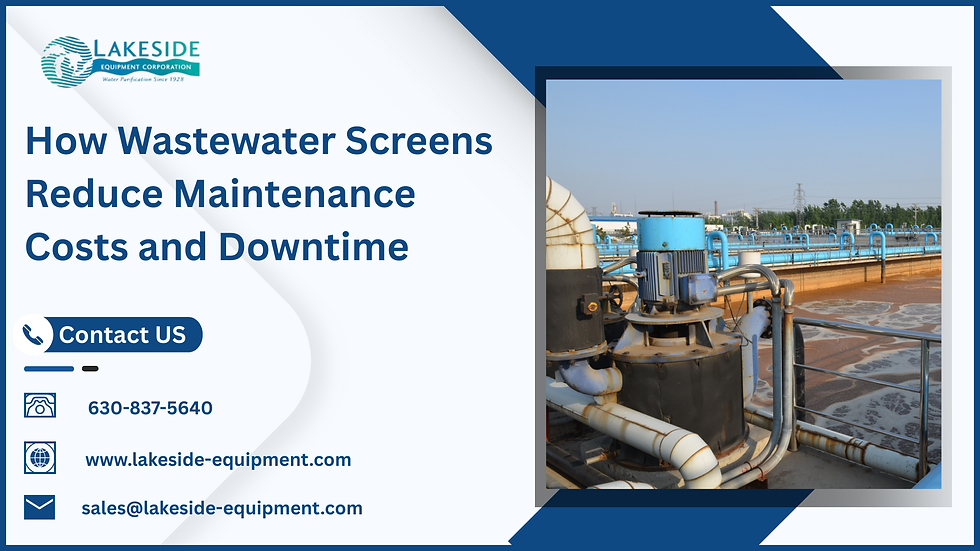The Economics of Wastewater Treatment: Balancing Costs and Environmental Benefits
- lakesideequipment

- Mar 27, 2024
- 2 min read
Wastewater treatment might not be the most glamorous topic, but it's crucial for our environment and public health. Let's dive into the fascinating world of wastewater treatment and explore how its economics play a pivotal role in striking a balance between costs and environmental benefits.

Why is Water Treatment Important?
Water treatment is essential because it safeguards our precious water resources and protects the environment from pollution. Wastewater, if left untreated, can contain harmful contaminants that pose serious risks to aquatic ecosystems and human health. By treating wastewater before it is discharged back into the environment, we can ensure clean and safe water for drinking, recreation, and agriculture.
Understanding Wastewater Treatment
So, how does wastewater treatment actually work? Well, it's a multi-step process that involves removing contaminants and pollutants from wastewater to make it safe for reuse or disposal. At the heart of this process is the wastewater treatment plant, where various mechanisms and technologies are employed to treat incoming wastewater.
The Role of Wastewater Treatment Plants
Wastewater treatment plants are like superheroes silently working to protect our environment. These facilities receive wastewater from homes, businesses, and industries and treat it using a combination of physical, chemical, and biological processes. One essential component of wastewater treatment plants is the Archimedes screw pump, which helps lift and transport wastewater through different treatment stages.
Navigating Wastewater Clarification
Wastewater clarification is a crucial step in the treatment process where suspended solids and other contaminants are removed from wastewater. This is achieved through sedimentation or filtration, allowing clear water to separate from solids before further treatment. By clarifying wastewater, we can significantly reduce the risk of water pollution and protect sensitive ecosystems.
Balancing Costs and Environmental Benefits
Now, let's talk about the economics of wastewater treatment. Building and operating wastewater treatment plants require significant investment in infrastructure, equipment, and skilled labor. However, the costs associated with wastewater treatment must be weighed against the environmental benefits it provides.
Cost-Effective Solutions
While wastewater treatment may seem expensive, it's important to consider the long-term economic and environmental benefits. Investing in wastewater treatment infrastructure not only protects public health and the environment but also supports economic growth and sustainability. Moreover, advancements in technology and innovative solutions, such as energy-efficient treatment processes and decentralized treatment systems, are making wastewater treatment more cost-effective and sustainable than ever before.
The Bottom Line
In conclusion, wastewater treatment is essential for maintaining clean waterways, protecting public health, and sustaining our environment. While the economics of wastewater treatment may present challenges, the benefits far outweigh the costs. By investing in wastewater treatment infrastructure and embracing innovative solutions, we can achieve a balance between economic prosperity and environmental stewardship. So, let's continue to prioritize wastewater treatment and ensure a cleaner, healthier future for generations to come.




Comments